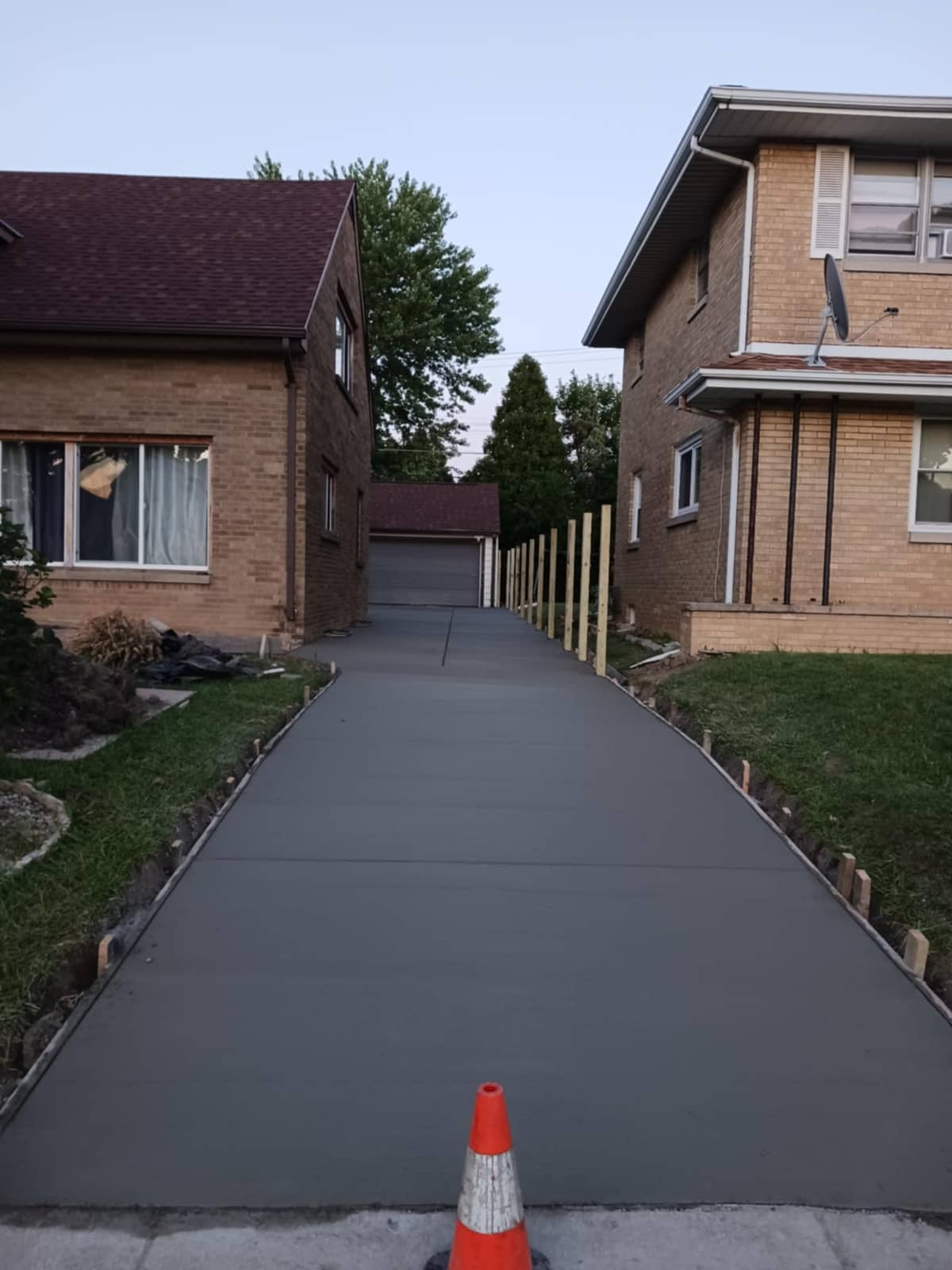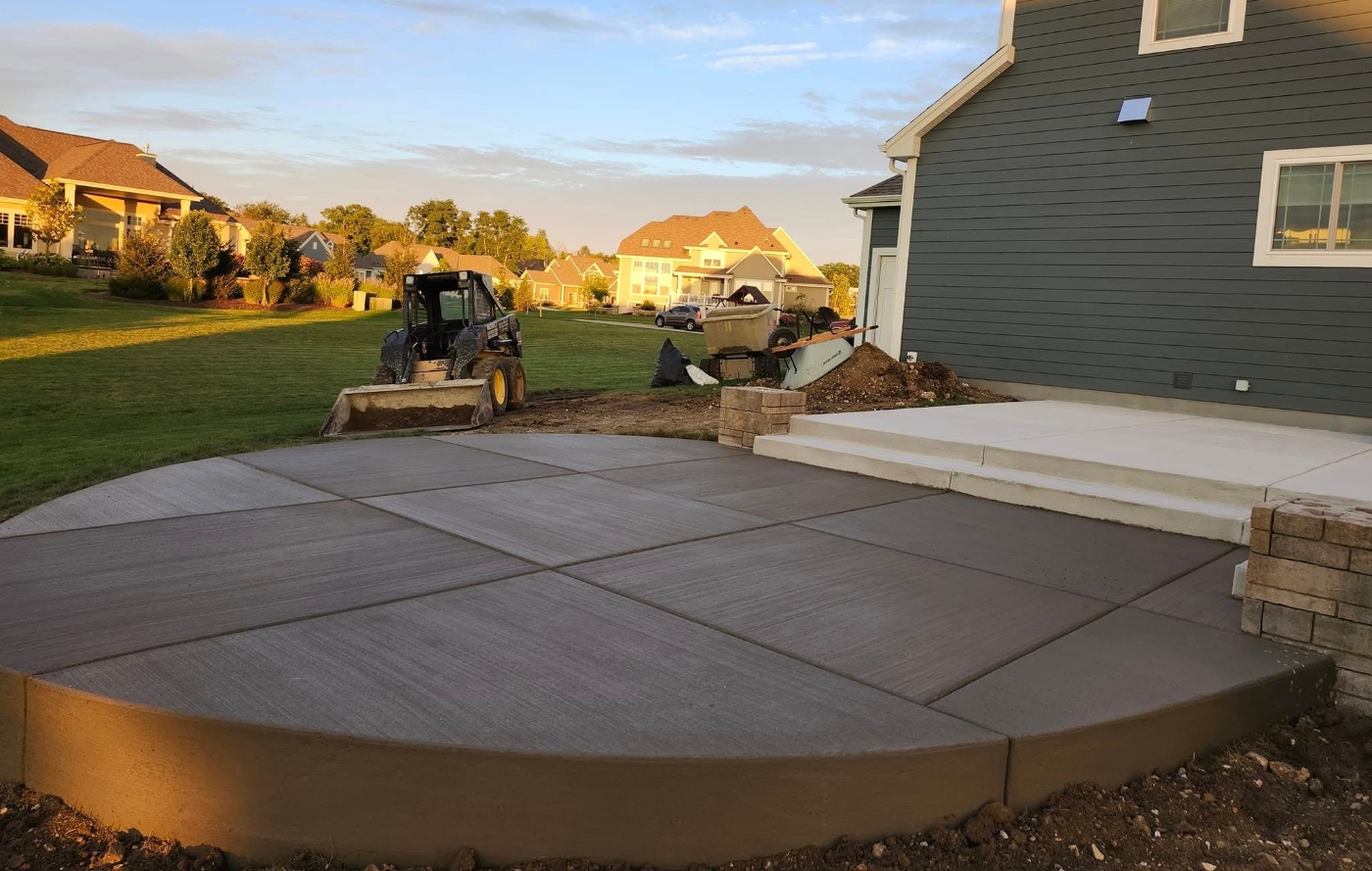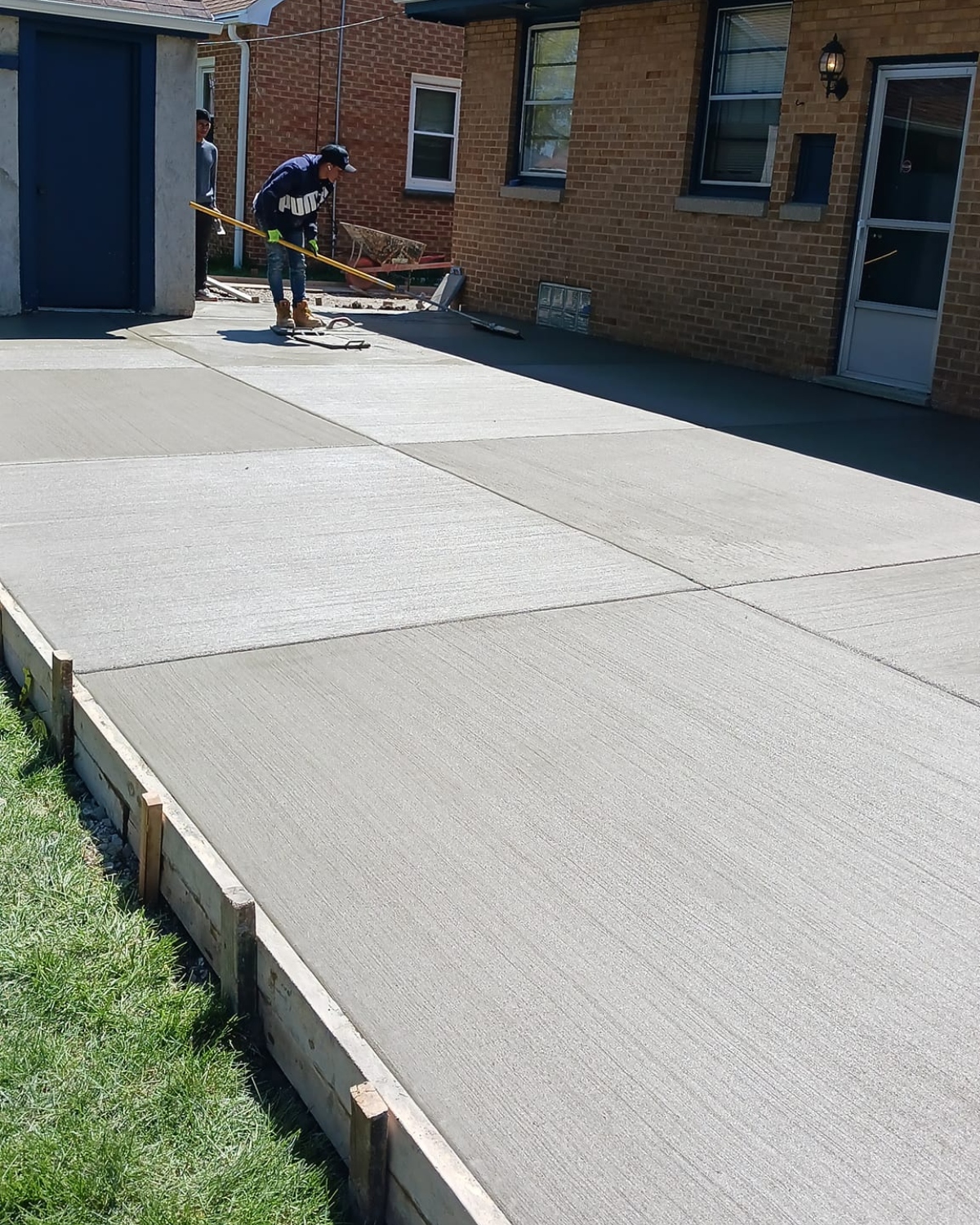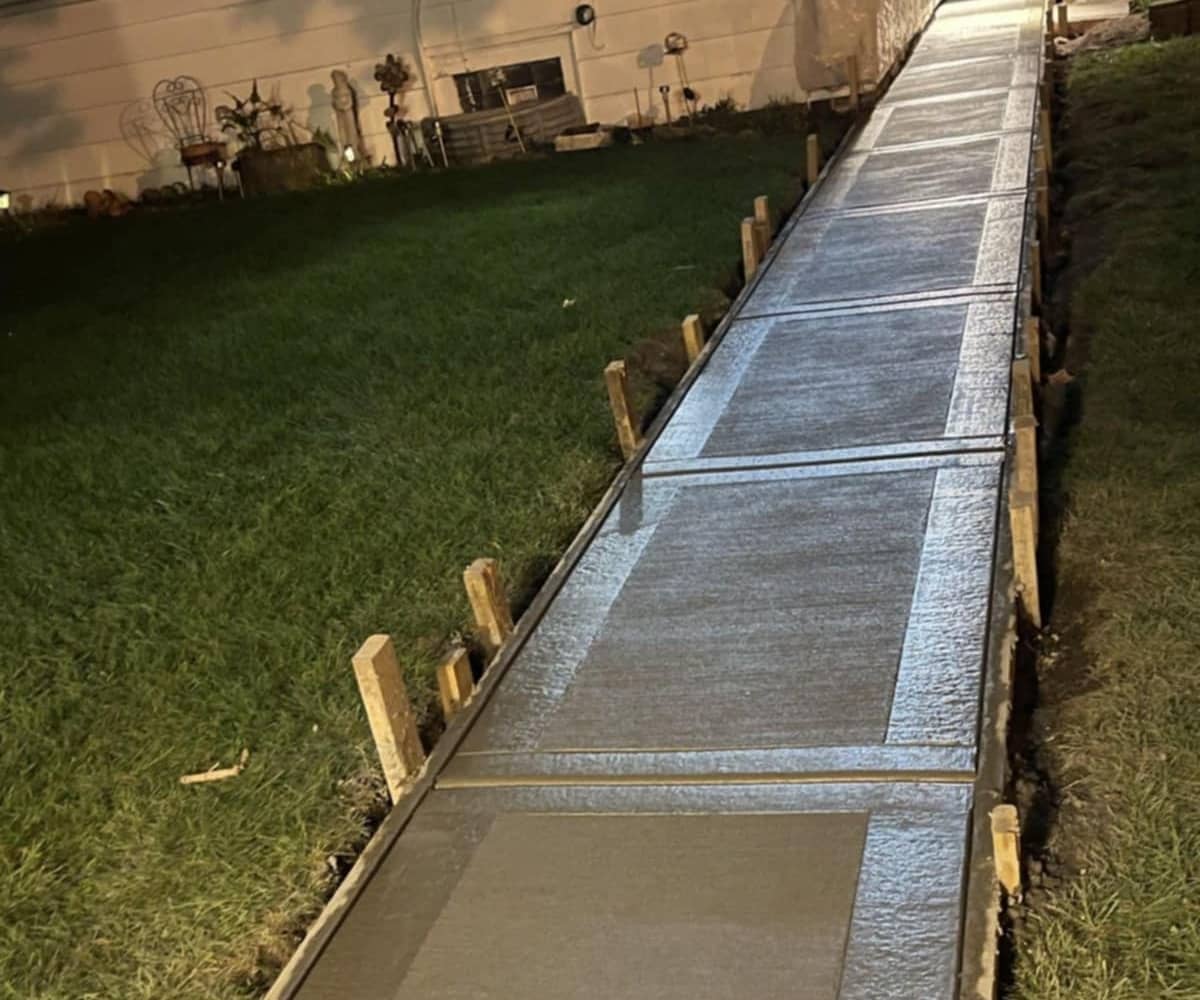Long-lasting concrete driveways, patios, and sidewalks all require necessary planning for success. Part of any successful concrete project involves evaluating your project needs and determining the optimal time to schedule the work.
The month and season you choose for pouring concrete are essential if you want a concrete surface built to last, especially in Wisconsin. There are other factors, like using the proper mix of concrete for the job and correct site preparation, but it all starts with choosing the best time to pour concrete.
To get the best results, hire a professional company like Vazquez Construction LLC, which has experience in building durable concrete projects in Wisconsin.
What Is The Ideal Temperature To Pour Concrete?
The outside weather conditions are one of the most important factors when pouring exterior concrete for driveways and interior concrete for garage or basement floors. In order for concrete to pour smoothly and set well, the ideal temperature range is between 50°F and 70°F.
Concrete is a precise semi-liquid mixture, a composite of aggregate and paste. After pouring, the concrete compounds chemically bind together, creating a smooth, hard slab. The drying process requires time to become solid and tough enough for regular use. Steady temperatures during the first three days are vital to allow the cement to dry successfully.
Temperatures below 40°F can disrupt the chemical bonding of the concrete mixture. These conditions could result in defective concrete. When temperatures reach above 85°F, there are other problems that arise. While there are additional measures you can take at this point, the drying and setting process is accelerated during high temperatures, weakening its structure and making it more prone to cracks.
When you live in a state like Wisconsin that constantly experiences swinging temperatures that can get very high or low, you’ll want a professional who’s experienced enough to find the best time to start your project.

Best Time Of Year To Pour Concrete
For your project to go smoothly and achieve the best results, it’s wise to consider the month you start the work. Aim for late spring from May to June or early autumn from September to October, as these seasons offer the mildest weather, which you’ll need for a good concrete pour. Note that it’s still fine to pour concrete outside any of these months, but these are just the ideal times. We work on concrete projects for clients for most months outside of winter.
Early autumn in Wisconsin is the best time to pour concrete, because the weather is fairly steady, there is less rain, and the cooling evening temperatures help the curing process.
You’ll want to look for a climate window of at least three days of clear, dry weather, so the pouring and initial setting can take place without issues. The best time to begin is when the predicted daily temperature is expected to remain above 60°F.
You should pour your concrete early enough in the season to allow at least 28 days after the initial pouring for the concrete to continue curing before winter.
Late spring is also a good time to pour concrete in Wisconsin, but be sure to watch the weather forecast and aim for a window with no predicted rain or high winds. Conditions are best when the temperature is steady and the humidity is lower and consistent, as in late May or early June.
Time of Day to Pour Concrete
Timing is everything when it comes to pouring concrete, so having a flexible schedule is essential when going into a project. It’s best to avoid midday hours and choose either early morning or late afternoon to start the work. The moisture content in the morning air will retain the water in the concrete, ensuring gradual and uniform initial setting. Without sufficient moisture in the air, the water in the concrete mix can evaporate too quickly, resulting in less durable concrete with a surface more prone to cracking.

When you lay it down in the morning, you can also take advantage of the warming temperatures during the day for a smooth setting process.
If you have an upcoming spell of mild weather in the forecast, your contractor might opt to avoid the daytime heat and begin the pour in late afternoon. Cool evening hours can help concrete cure evenly, as long as the weather stays mild throughout the night.
Fortunately, this is something that you, as the homeowner, shouldn’t have to worry about too much. A professional concrete contractor should have the experience to evaluate upcoming weather conditions and choose the correct time frame. Time of day might not make too much of a difference if you're installing a basement floor compared to a concrete patio.
The Worst Time To Pour Concrete
Although concrete is an extremely versatile material that can withstand many exterior influences, there are some months that are best avoided for concrete projects. January, a stormy and snow-filled month, is the worst time to pour concrete in Wisconsin.
When temperatures drop below 40°F, the concrete mixture has a difficult time maintaining the chemical process that makes it durable and long-lasting. Additionally, if you decide to install concrete after the ground has frozen, the chances that your concrete will crack and crumble become far greater.
Freezing temperatures are particularly detrimental to concrete. If the water in the cement slurry freezes as it sets, the concrete will cure unevenly. It can later expand and contract during freeze-thaw cycles, resulting in weakness, eventual shifting, and cracks.
A frozen site foundation can lead to buckling and cracking in a newly poured concrete slab. In worse conditions, the upper portions of the slab can break off.
Try to start your project with enough time for the curing process to finish before the uncertainty of winter weather comes into play, and be open to changes dictated by the climate.
A professional concrete expert will work with your schedule and figure out the best time to do things. Even if the weather is not the most favorable, they may be able to apply technical workarounds, so you can have a beautiful new concrete surface for your driveway, sidewalk, floor, or patio.
Contact us today for a free estimate and setup an ideal time to get your concrete project done.

